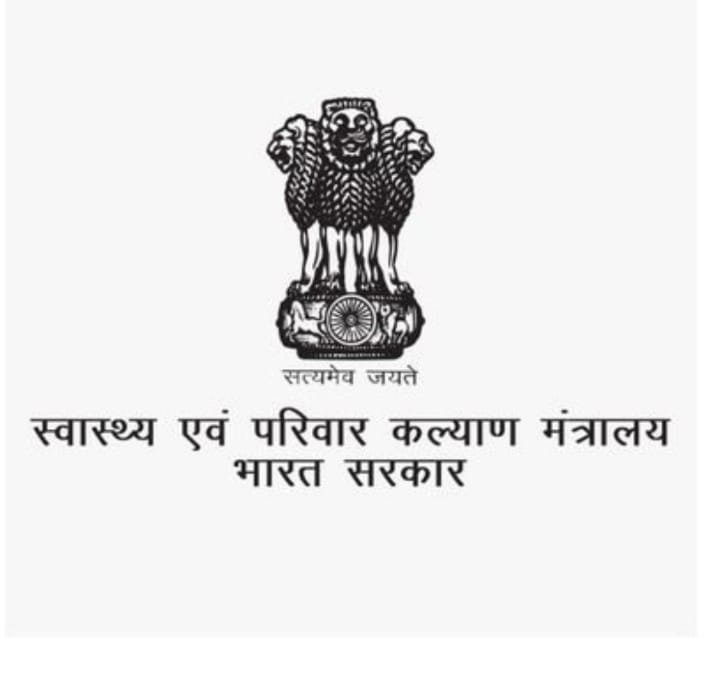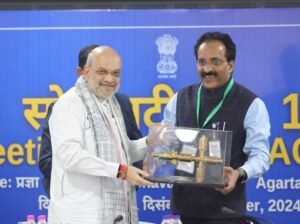A high-level inter-ministerial meeting chaired by the Union Health Secretary reviewed the dengue situation and preparedness situation in nine states
jatinnews.com August 2, 2024 0
The Union Health Secretary stressed on the need for cooperation among stakeholders, including the Ministry of Urban Development, states, municipal corporations and local self-government for effective dengue prevention and control.
States and municipalities have been advised to be cautious to prevent any infection in a timely manner.
The Union Health Secretary advised the states to ensure identification of hotspots, increased vector surveillance, geotagging of dengue patients to take preventive measures, hospital preparedness.
Death rate due to dengue has come down from 3.3% (1996) to 0.17% (2023):Health Secretary Shri Apoorva Chandra.
Union Health Secretary Shri Apoorva Chandra has advised the states and municipalities to be cautious to prevent any outbreak of dengue in a timely manner
Union Health Secretary Shri Apoorva Chandra has advised the states and municipalities to be cautious to prevent any outbreak of dengue in a timely manner. Chairing a high-level inter-ministerial meeting (conducted in hybrid mode) to review and assess the preparedness of the public health system to review and prevent the dengue situation in nine high-burden states, he said, “It is imperative that the stakeholders concerned, including the Ministry of Urban Development, states, municipal corporations and local self-government bodies, work together to prevent and manage the spread of dengue in the country.” Dengue control and management in view of the onset of monsoon and the rise in dengue cases. Secretaries and high-level officials of nine states – Ministry of Housing and Urban Affairs, Delhi, Gujarat, Karnataka, Maharashtra, Rajasthan, Tamil Nadu, Telangana, Uttar Pradesh and West Bengal – participated in the meeting. A total of 18 muni.
Mr. Apoorva Chandra highlighted the need for early measures and public health measures ahead of the monsoon season when dengue cases are usually at their peak in the months of August
Mr. Apoorva Chandra highlighted the need for early measures and public health measures ahead of the monsoon season when dengue cases are usually at their peak in the months of August, September, October and November. He stressed that in the last four years, the infection has been increasing year after year. While the number of dengue cases usually peaks in October, this year’s trend shows that as of July 31, 2024, the number of cases is nearly 50 per cent higher than the same period last year.
The health secretary urged the states to ensure that they are prepared for the upcoming peak. The Health Secretary said that while the number of cases has been increasing in the last four years, due to careful, timely and collaborative efforts, the death rate due to dengue has come down from 3.3% in 1996 to 0.17% in 2023.
Shri Apoorva Chandra advised the states to be prepared with effective hospital management of dengue patients. Secretary suggests identification of hotspots, increasing vectors.
The Union Health Secretary called for enhancing cooperation
In order to enhance preventive and control efforts, the Union Health Secretary called for enhancing cooperation by developing joint action plans to have greater impact between the Ministry of Health and the Ministry of Housing and Urban Affairs. He highlighted the need for cooperation of the Ministry of Urban Development in the form of cleanliness drives, especially during the peak period of dengue patients from the beginning of the monsoon season till November.
Shri S.P. Singh, Additional Secretary, Ministry of Health, briefed about the various measures taken to prevent and control the spread of dengue. He mentioned about “Safai Apnao, Bimari Bhagao Abhiyan” and Swachh Bharat Portal. He said these measures focus on monitoring activities related to drainage of accumulated water and prevention of waterlogging.
Various strategies and public health measures for prevention and control of dengue and chikungunya have been implemented by the Ministry of Health, such as:
Update of Case Management on 10.8.2023 National Guidelines were issued and shared with the States
For free diagnosis and disease surveillance, sentinel surveillance hospitals have increased from 110 in 2007 to 848 in 2024
Update of Case Management on 10.8.2023 National Guidelines were issued and shared with the States
Master trainers of medical colleges and district hospitals trained in four national-level trainings on updated guidelines to improve clinical management and avoid deaths due to dengue
Additional Secretary and MD (NHM) Aradhana Patnaik, Joint Secretary (VBD) Vandana Jain; The meeting was attended by Dr Tanu Jain, Director, National Centre for Vector Borne Disease Control (NCVBDC) and senior officials of the Union Health Ministry. Officials from the states and their municipal corporations attended the meeting virtually.
The background
Dengue is a rapidly emerging, outbreak prone and mosquito-borne viral fever. Dengue has become an epidemic in urban areas in the last few years due to relatively high temperatures (Urban Hit Island), greater centralisation of population, rapid construction, inadequate solid waste management and improper water storage practices contributing to increasing the density of vector Aedes mosquitoes.
A total of 2.33 lakh cases and 303 deaths were reported in 2022, while in 2023, there were a total of 2.89 lakh cases and 485 deaths due to dengue. Urban areas account for 55-58 per cent of the total infections in the last few years, which increased to around 68 per cent in 2023. read more

